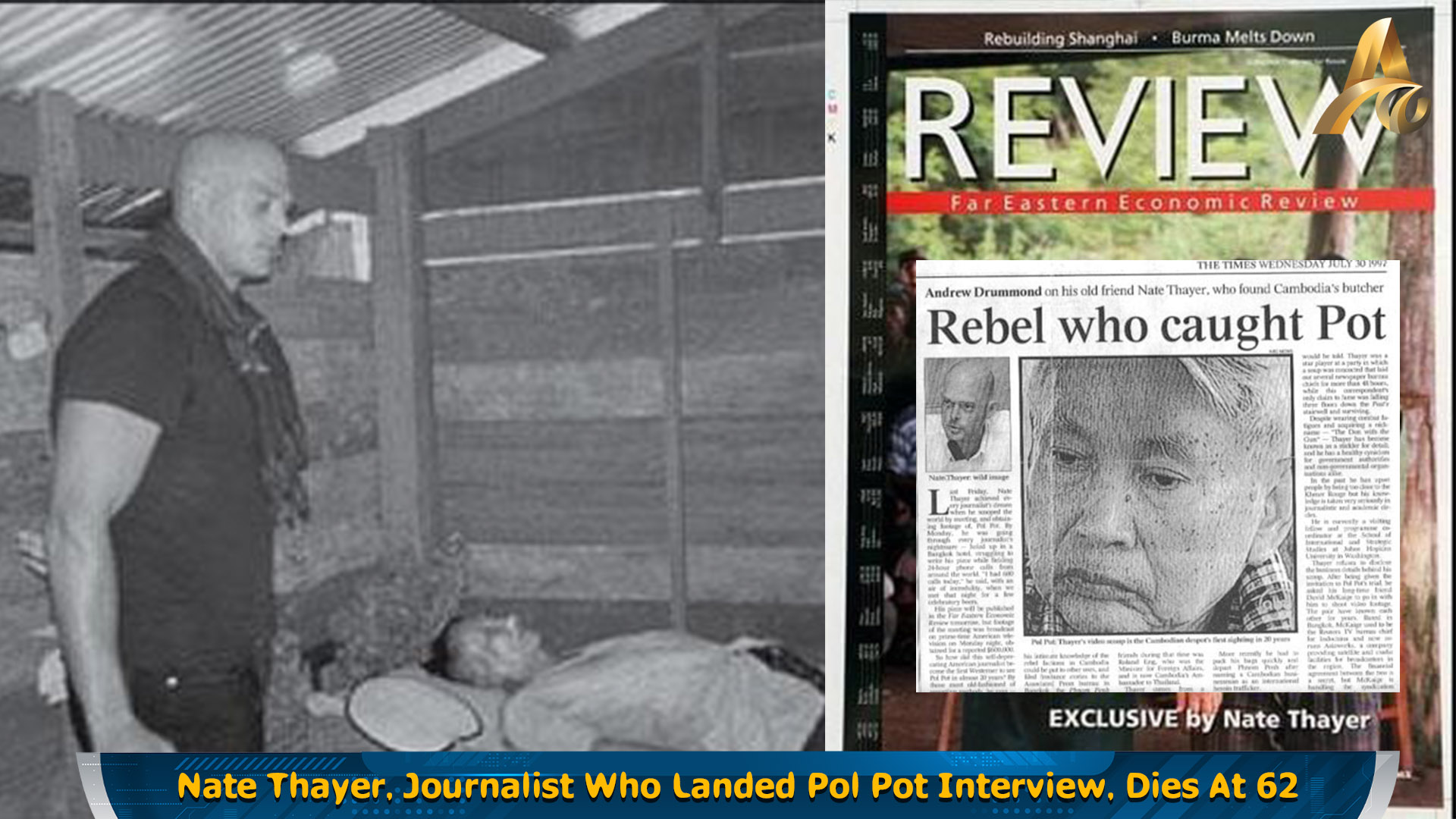PHNOM PENH: Nate Thayer. an American journalist who chased stories of conflict across the jungles of Southeast Asia and was the last Western correspondent to interview the Khmer Rouge’s genocidal leader Pol Pot, has died at his home in Falmouth, Mass. He was 62.
During decades of reporting beginning in the late 1980s, Mr. Thayer cultivated a reputation as a freelancer willing to endure hardships and risks to track down far-flung stories for outlets including Soldier of Fortune magazine, the Far Eastern Economic Review, the Associated Press and The Washington Post.
With his shaved head and teeth stained by chewing tobacco, he evoked a throwback-style correspondent image and delighted in regaling others with stories from the field. They included near misses, including suffering serious injuries when the Cambodian guerrilla transport truck he was aboard triggered an antitank mine in October 1989.
In later years, he used social media to relentlessly burnish his hard-charging image and push his claims that he was wronged by ABC’s “Nightline” over rights issues to use video from Pol Pot’s July 1997 kangaroo-court “trial” by disgruntled former followers at a Khmer Rouge camp in northern Cambodia.
His reporting on Pol Pot’s final months remained the journalistic centerpiece of Mr. Thayer’s career — a major journalistic coup that drew international attention. His work also added important historical details to the “killing fields” legacy of the Khmer Rouge’s 1975-1979 rule. An estimated 1.7 million Cambodians — intellectuals, doctors, dissidents and many others — lost their lives as the regime attempted to impose a radical agrarian Communist order.
“He illuminated a page of history that would have been lost to the world had he not spent years in the Cambodian jungle,” noted an award bestowed by the International Consortium of Investigative Journalists in 1998.
A year earlier, Mr. Thayer convinced members of the surviving Khmer Rouge factions that international coverage was needed for Pol Pot’s reckoning before those former guerrillas who had turned against him. “Crush, crush, crush Pol Pot and his clique,” some chanted as Mr. Thayer and a cameraman from Asiaworks Television, David McKaige, reached the remote Anlong Veng camp.
Writing in the Far Eastern Economic Review, Mr. Thayer described how Pol Pot was sentenced to life imprisonment and led away to a Toyota Land Cruiser with tinted windows.
“Some people respectfully bowed, as if to royalty,” he wrote. Mr. Thayer did not have the chance to ask Pol Pot any questions.
Mr. Thayer struck a verbal deal with ABC to allow the video to be broadcast on the ABC News program “Nightline.” During the segment, Mr. Thayer described the event as if Adolf Hitler had survived and was found later in a bunker in South America.
“Remember, I’ve lived in Cambodia,” he told “Nightline” host Ted Koppel. “Most of my friends have had their lives destroyed by Pol Pot. So it was a profoundly moving moment. … I cried many times for everybody I knew.”
Mr. Thayer long insisted that ABC reneged on promises to give him control of the material. He later turned down a Peabody Award for the “Nightline” broadcast, which cited his reporting as “significant and meritorious.”
“I didn’t have a penny a week ago, and if I don’t have a penny a week from now, I still have my integrity,” he was quoted as saying in the American Journalism Review.
Mr. Thayer was allowed to return to the camp in October 1997 with a promise to interview Pol Pot. The last Western journalists to do so, in 1978, were The Post’s Elizabeth Becker and Richard Dudman of the St. Louis Post-Dispatch. Mr. Thayer was told to wait near a small hut.
Mr. Thayer wrote in the Far Eastern Economic Review about how the former dictator, then 72, needed to grab his arm to walk a short distance to the hut.
“The man who presided over the Cambodian holocaust is about to give his first interview in 18 years,” Mr. Thayer wrote. “It's his chance to make some kind of peace with his bloodstained past.”
Pol Pot appeared incongruously soft-spoken, making his points calmly and in measured tones.
“Were you responsible?” asked Mr. Thayer about the mass killings.
“I only made decisions concerning the very important people,” Pol Pot replied. “I didn’t supervise the lower ranks.”
Mr. Thayer had one more exclusive concerning Pol Pot: He was back at the Anlong Veng camp a day after Pol Pot died in April 1998 and took photos of the body before it was cremated.
His reporting became the only independent confirmation of Pol Pot’s death. “He’s dead,” Thayer told The Post in a telephone interview at the time. “That was Pol Pot. There was no question that was Pol Pot.”
Yet Mr. Thayer found the death more of an open wound than a closure.
“And along with Pol Pot’s death, unfortunately, goes the chance of finding out really what happened and why,” Mr. Thayer told NPR’s “All Things considered.” “There’s so many unanswered questions of why so many people suffered so unspeakably and so unfairly. And this man was in sole control.”
(Source The Washington post)



























